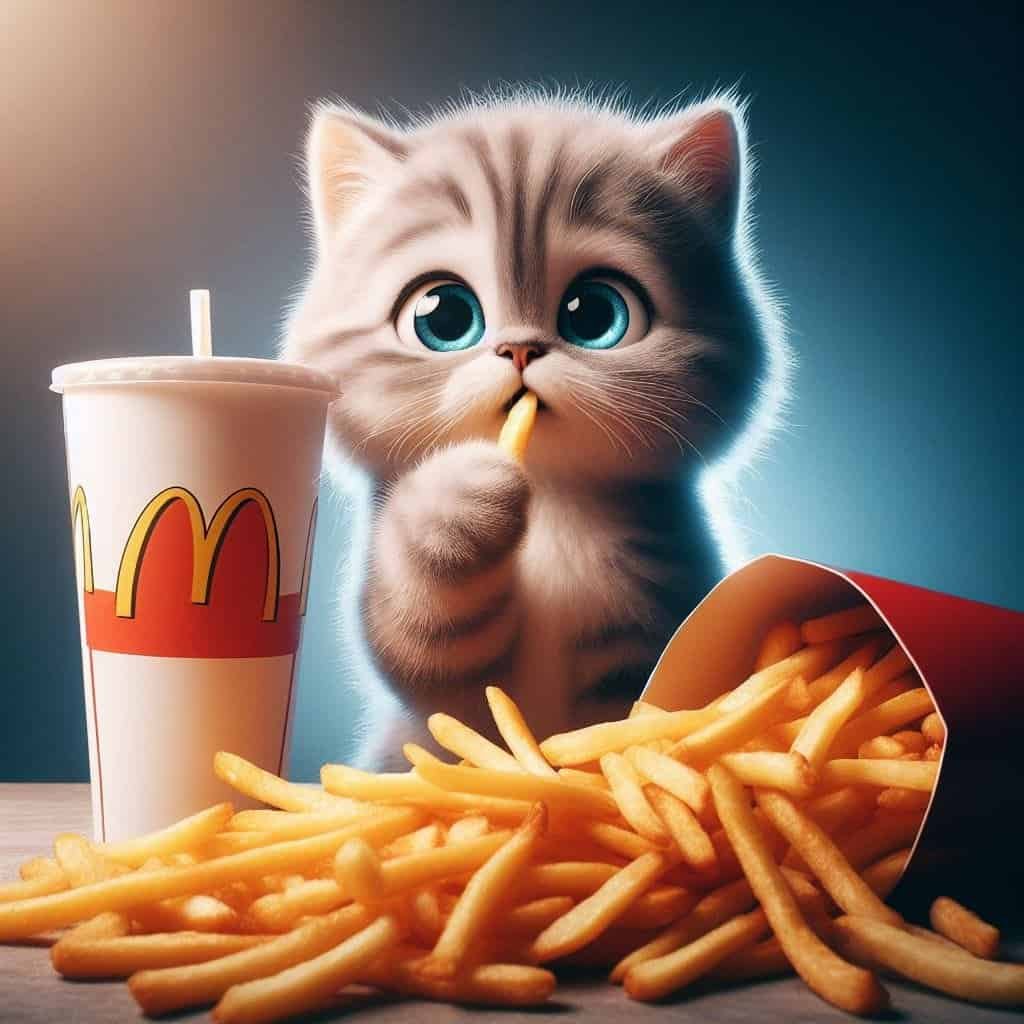
Ah, the irresistible aroma of freshly cooked fries! As a feline enthusiast, it’s only natural to wonder if our adorable little kittens can indulge in this crispy delight. While it may be tempting to share our favorite snacks with our furry companions, it’s crucial to prioritize their health and well-being. In this article, we’ll explore the dietary needs of kittens, understand the potential risks associated with feeding them fries, and provide alternative options that can keep them happy and healthy.
Understanding a Kitten’s Dietary Requirements
Kittens, like their adult counterparts, are obligate carnivores. This means that they require a diet primarily consisting of meat to thrive. Their bodies are designed to obtain essential nutrients from animal protein, particularly taurine, which is crucial for their growth and development. Therefore, it is essential to provide them with a balanced diet that comprises high-quality commercial kitten food or well-prepared homemade meals.
The Risks of Feeding Fries to Kittens
- Nutritional Imbalance: Fries are typically high in carbohydrates, unhealthy fats, and sodium. Feeding kittens fries as a regular part of their diet can lead to an imbalance in their nutritional intake, which may result in deficiencies or excesses of certain essential nutrients. This can have detrimental effects on their overall health and growth.
- Digestive Issues: Kittens have delicate digestive systems that are still developing. The greasy nature of fries, coupled with the high fat content, can lead to gastrointestinal distress, including diarrhea, vomiting, and even pancreatitis. These conditions can be severe and require immediate veterinary attention to prevent dehydration and further complications.
- Salt Toxicity: Fries are often seasoned with salt, which can be harmful to kittens in large amounts. Excessive sodium intake can lead to dehydration, electrolyte imbalances, and, in severe cases, salt toxicity. The consequences of salt toxicity can range from increased thirst and urination to seizures and even death.
Alternative Treats for Your Feline Companion
While fries may not be suitable for kittens, there are several healthier alternatives that can still make their taste buds tingle:
- Cooked Meat: Kittens require a protein-rich diet, so cooked lean meats such as chicken, turkey, or fish can be a great treat. Ensure the meat is boneless, well-cooked, and free from any seasonings or additives that may be harmful.
- Cat-Specific Treats: Explore the wide range of commercially available treats formulated specifically for kittens. These treats are designed to meet their nutritional needs and are often fortified with essential vitamins and minerals.
- Homemade Treats: If you prefer a DIY approach, consider making homemade treats using kitten-friendly ingredients. You can bake small, bite-sized treats using a combination of lean meats and whole grains such as oats or rice.
- Fresh Fruits and Vegetables: Some kittens enjoy the occasional taste of fruits and vegetables. Offer small pieces of cat-safe options like cooked carrots, green beans, or even a slice of apple. However, remember that these should only be given in moderation as treats rather than a significant portion of their diet.
Conclusion
While it may be difficult to resist those pleading eyes, it’s crucial to prioritize a kitten’s health over our own desires. Fries, with their high fat and salt content, are not suitable for kittens and can lead to nutritional imbalances, digestive issues, and salt toxicity. Instead, opt for healthier alternatives that meet their dietary needs and provide the occasional treat within moderation. By offering a balanced and nutritious diet, you’ll ensure that your feline companion grows into a healthy and happy adult cat.





